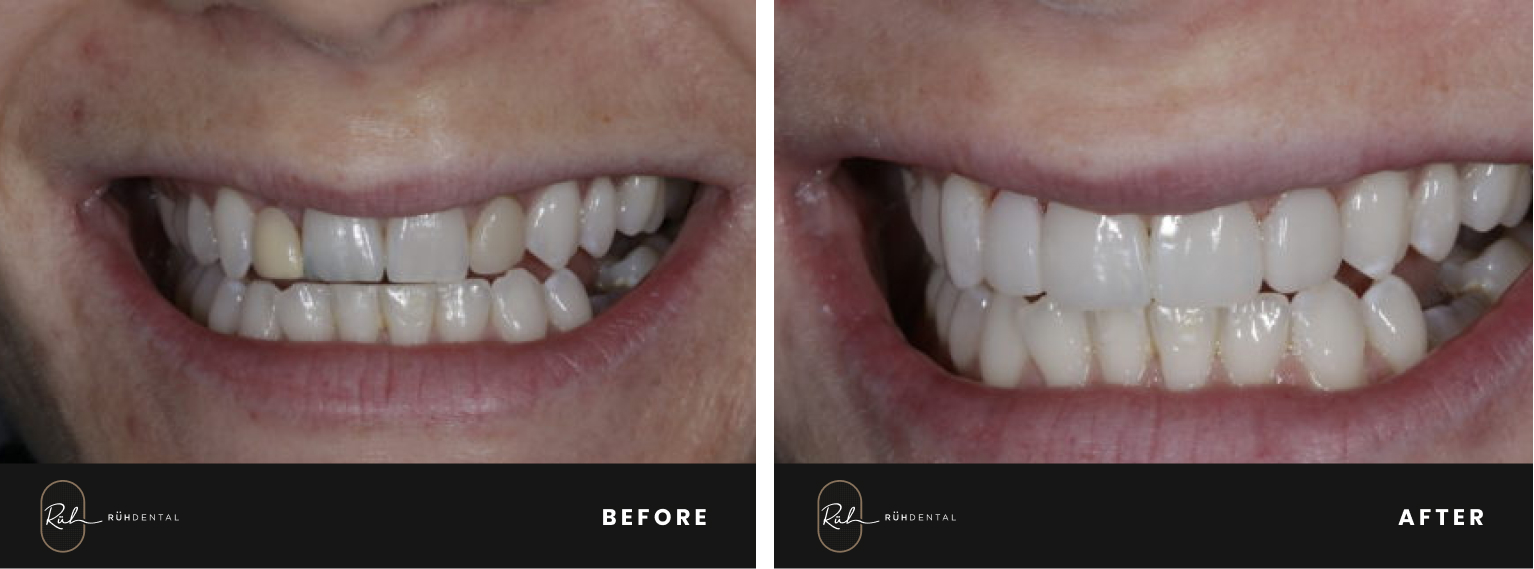Are you considering replacing a missing or damaged tooth with a dental implant? If so, then you’ve come to the right place! A dental implant is an artificial prosthetic tooth that consists of a titanium post, visible crown, and abutment – these three components work together to offer superior stability and support when compared to traditional options such as dentures. With this blog post, we will cover everything you need to know about dental implants so that you can make an informed decision about your oral health needs. Read on for more information!

What are dental implants and how do they work
Dental implants are a popular form of treatment that provide a permanent solution to missing teeth. Unlike dentures, implants are fixed into place, providing a more secure and natural-looking alternative. They are often used in cases where individuals have lost a tooth or teeth due to injury, disease or decay. The process involves the placement of a small titanium post into the jaw bone, which acts as the replacement tooth root. The implant is then left to fuse with the jaw bone over several months, ensuring a strong and sturdy foundation for the replacement tooth. Dental implants are highly effective, and patients have reported major success with both smile in a day and full mouth implant procedures. Whether you need a single dental implant or a full set, dental implants are a great option for those looking to restore their smile and improve their dental health.

Benefits of getting dental implants
Dental implants have become an increasingly popular option for people who want to restore the functionality and appearance of their teeth. Unlike dentures, dental implants offer a permanent solution that feels like natural teeth. Even if you need full mouth implants or just a single dental implant, the results of the procedure will be a smile that you can be proud of.
One of the biggest advantages of dental implants is the smile in a day option, which allows patients to receive their implants and leave the office with a new smile on the same day. With proper care, dental implants can last a lifetime, making them a wise investment for anyone who wants to improve their oral health and confidence.
Types of dental implants available
If you are missing one or multiple teeth, you may be considering dental implants as an option for restoring your smile. There are different types of dental implants available, including single dental implants, full mouth implants, and Smile in a Day implants. Single dental implants are designed to replace one missing tooth, while full mouth implants may be recommended for patients who have lost most of their teeth. Smile in a Day is a procedure that combines both types of implants to restore a patient’s smile within a single day. With the advancements in dental implant technology, there are now more options than ever to help you achieve a healthy and beautiful smile
The process of getting a dental implant
If you’re considering getting a dental implant, it’s important to understand the process. With modern technology, some dental implants can even be done in a single day, known as “Smile in a Day.” However, for more complex cases such as full mouth implants or multiple single dental implants, the process may take more time. The first step is to consult with a dental professional who will evaluate your oral health and determine whether you are a good candidate for the procedure. Once approved, a dental implant will typically involve several appointments, including the placement of the implant, attaching the abutment, and finally attaching the crown. While it may seem daunting, the benefits of dental implants are worth it. Not only do they look and feel like natural teeth, but they can also improve your overall oral health and give you a beautiful, confident smile.
How to care for your new dental implant
Whether it’s a single tooth or full mouth implants with the Smile in a Day procedure, proper care is essential for ensuring a healthy and long-lasting smile. Firstly, it’s crucial to maintain excellent oral hygiene with daily brushing and flossing. You may need to adjust your routine slightly to avoid disrupting the implant site. Additionally, regular dental check-ups are essential for detecting any issues early on. Avoid vigorously chewing on hard or sticky foods and wear a mouthguard while playing sports to prevent damage. By following these simple steps, you can keep your dental implant looking and feeling great for years to come.
Cost of getting a dental implant
The cost of getting a dental implant varies depending on several factors, such as the type of implant needed and the level of expertise of the dentist. There are different types of dental implant procedures, including Smile in a Day, Full mouth Implants, and single dental implant.
Smile in a Day is a groundbreaking technique that allows for the placement of a full mouth of implants in a single day. Full mouth Implants are designed for patients who are missing all of their teeth, and single dental implants are perfect for those who have lost one or a few teeth.
Despite the varying prices of these procedures, dental implants remain a popular and effective option for restoring a perfect smile. With dental implants, you can improve your oral health, restore your confidence, and enjoy lasting results.
In conclusion, dental implants provide patients with a variety of benefits including enhanced appearance and improved oral health, as well as convenience and comfort. Implants offer a more permanent solution compared to other treatment options such as bridges or dentures and they can significantly improve the quality of your life. Research suggests that implants are safe when placed correctly by an experienced dentist. Knowing all the information and options that are out there is the key to making an informed decision about if dental implants would be a good choice for you and your smile.








